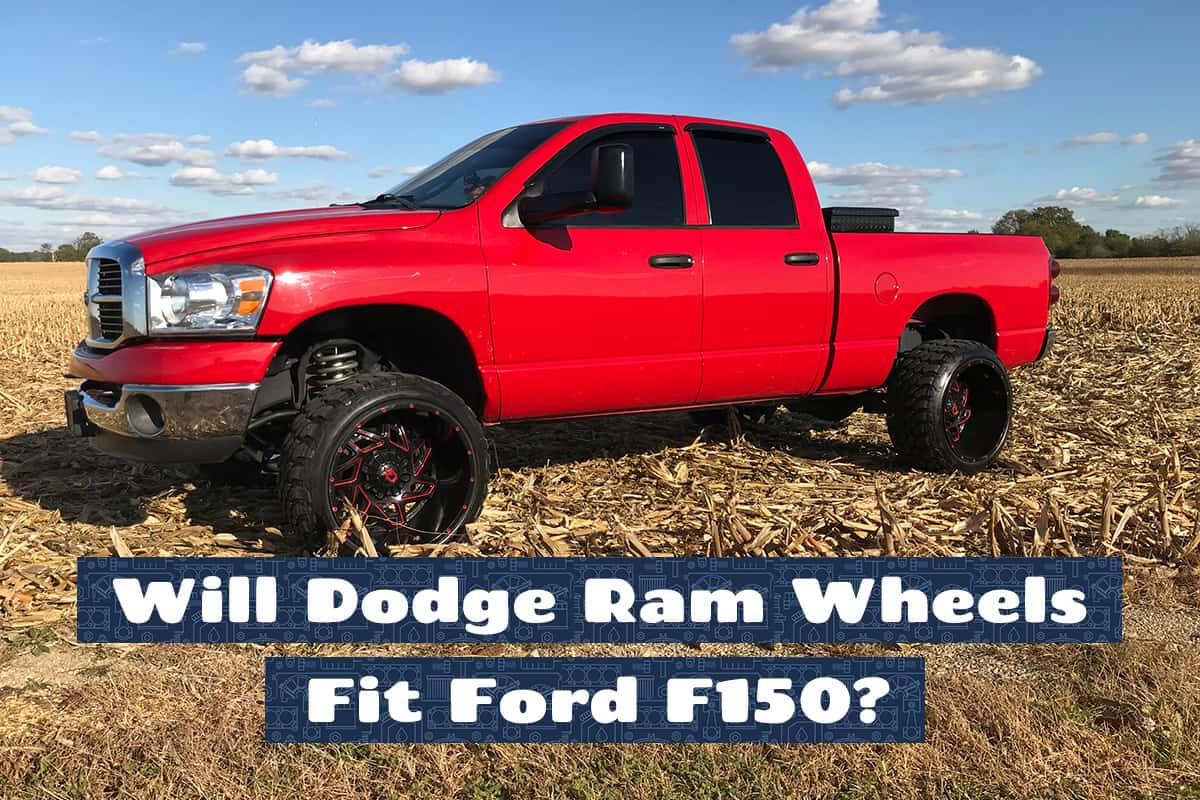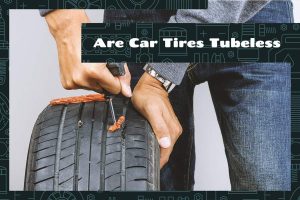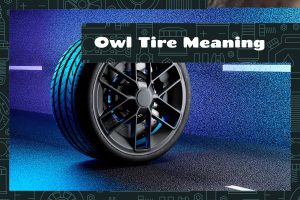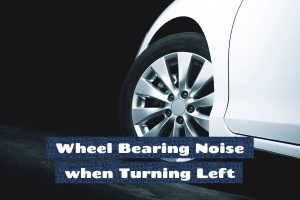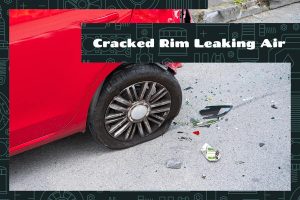When it comes to trucks, two names often stand out: Dodge Ram and Ford F150. Both are known for their rugged designs and performance capabilities. In the world of customization and personalization, a common question that arises is, can wheels designed for a Dodge Ram fit onto a Ford F150?
Yes, it can, provided that the Ford F-150 was made in 1996 and before. To evaluate whether the wheels of one truck are interchangeable with another, you need to understand the following aspects:
- Bolt patterns
- Hub size
- Wheel size and offset
- Weight capacity
This article will explore these factors in detail, as well as provide alternative aftermarket solutions for changing your F-150’s wheels.
Wheel Basics
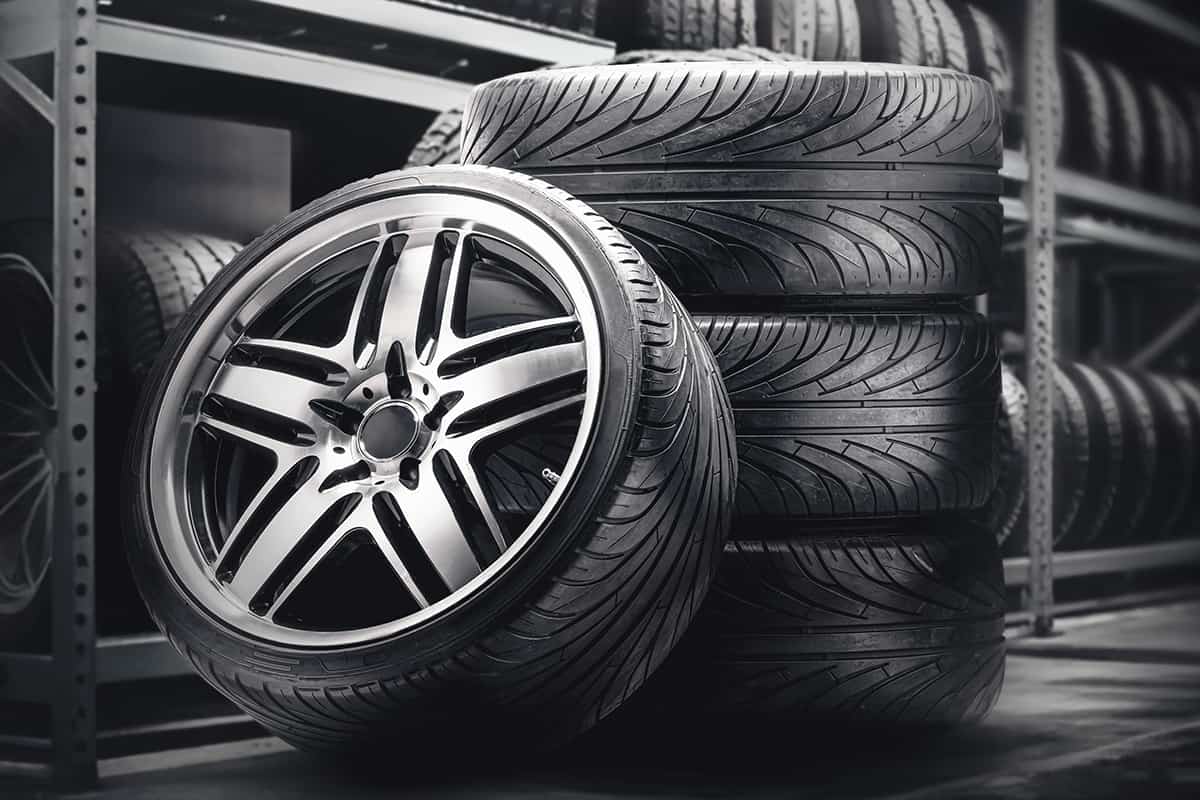
Before you detach your Ram’s wheels and place them on your F-150, you should first understand the fundamentals of wheels.
Wheel Anatomy
A wheel consists of several key parts, each with a specific role. The most vital components are the hub, spokes, rim, and bolt pattern.
- Bolt Pattern: Perhaps the most crucial part in terms of compatibility, the bolt pattern refers to the arrangement of lug holes used to secure the wheel to the vehicle. Both the number of bolt holes and the distance between them must match for a wheel to fit.
- Hub: The center part of the wheel, the hub, connects to the axle. It ensures the wheel rotates smoothly. The hub’s size is essential for compatibility, and mismatching hub sizes between different vehicle models can lead to problems.
- Rim: The outer edge of the wheel, the rim, holds the tire. Its size dictates the tire’s size that can be used. The rim’s width and diameter are crucial when determining if a wheel from one vehicle will fit another.
Wheel Specs
- Wheel Size and Offset: The wheel size includes the diameter and width of the wheel, which directly affects the tire’s size that can be mounted. The offset, on the other hand, is the distance from the wheel’s mounting surface to its centerline.
- Weight Capacity: This refers to the maximum load that a wheel can safely support. Generally speaking, the larger the wheel, the more weight it can bear.
Are Dodge Ram Wheels Compatible with Ford F-150?
The simple yet frustrating answer to this question is, yes and no. Yes, you can retrofit Dodge Ram wheels on your Ford F-150, assuming that your F-150 was produced in 1996 or earlier. If not, it will not have the same bolt pattern as the Dodge Ram.
Below is a table that quickly demonstrates how you can tell why you can or cannot install Dodge Ram wheels on your F-150.
| Specification | Dodge Ram | Ford F-150 |
| Bolt Patterns | 5×5.5 in. and 6×5.5 in. | 1996 and earlier: 5×5.5 in. |
| Wheel Size | 16 to 22 inches in diameter | 16 to 22 inches in diameter |
| Wheel Offset | Varies by model | Varies by model |
| Weight Capacity | Depends on model and usage | Depends on model and usage |
| Hub Size | Different across models | Different across models |
As you can see, the main distinguishing factor between the Ram and F-150 is bolt pattern. There may be overlap in regards to the other variables, but if the bolt pattern doesn’t fit, you can’t make it work.
How to Check for Compatibility
Before detaching your Ram’s wheels and attaching them to your F-150, you should double-check to make sure they’re compatible. Here’s what you need to focus on:
- Check the Bolt Pattern: The bolt pattern can be found in the owner’s manual, wheel manufacturer’s website, or on the wheel itself. Ensure that the wheel’s bolt pattern matches the vehicle’s pattern. If they don’t match, they won’t fit.
- Assess the Wheel Size: Check the wheel’s specifications and compare them to your vehicle’s recommended size. Ensure that there’s enough clearance in the wheel well, considering both static and dynamic situations.
- Examine the Wheel Offset: Correct offset ensures that the wheel is properly positioned within the wheel well, avoiding interference with suspension components. Compare the wheel’s offset to your vehicle’s factory specifications. Incorrect offset may cause handling problems.
- Evaluate Hub Size: If there’s a discrepancy in hub size, hub rings may be used to achieve compatibility. Hub size discrepancies can be tricky; consulting a professional is often beneficial.
- Consider Weight Capacity: The wheel must support the vehicle’s gross weight, including any additional loads like towing or cargo. Adhering to the manufacturer’s guidelines ensures that the wheel can handle the required stress.
Alternatives for Retrofitting Dodge Ram Wheels on Ford F-150
So far, we’ve explained that you have no hope of moving Ram wheels onto a F-150 made after 1996. However, there are certain things you can try to force it to work. These are just descriptions of what you can do, so make sure your vehicle meets all legal requirements and specifications before driving your modified F-150.
Adapters and Spacers
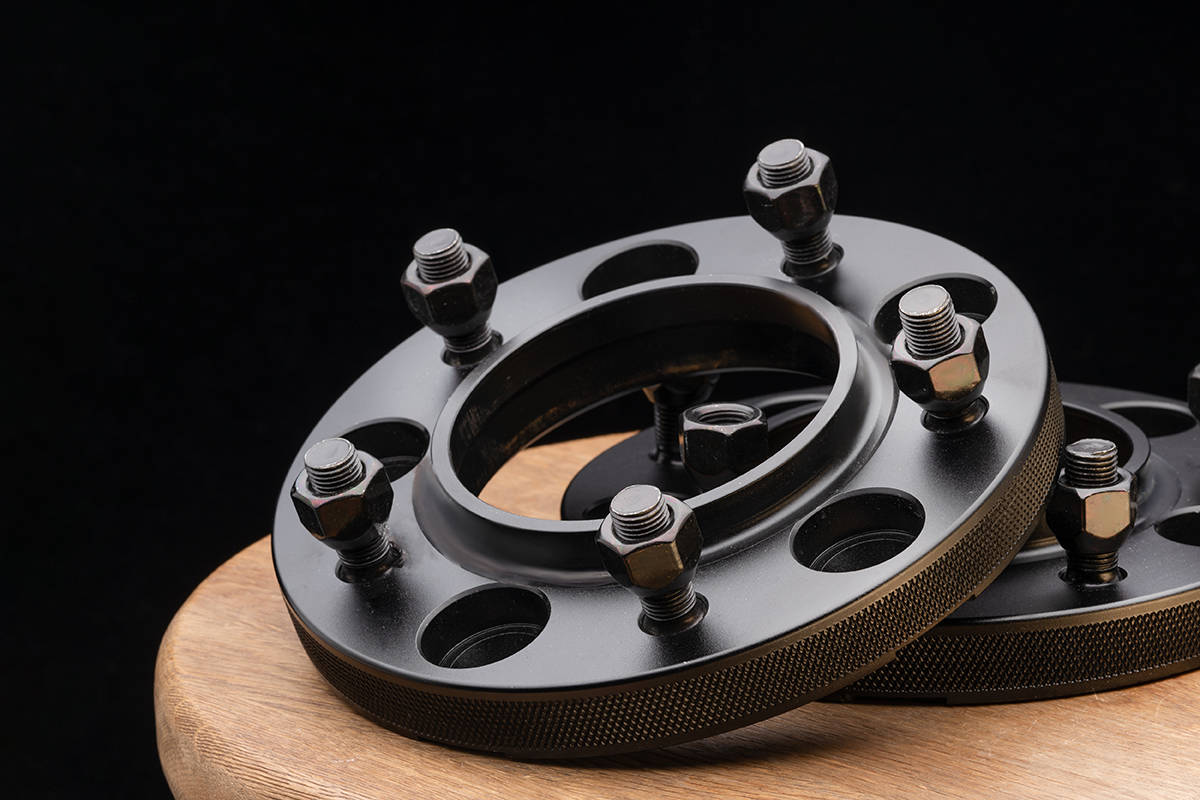
Adapters and spacers are popular solutions for achieving compatibility between different bolt patterns and offsets.
- Wheel Adapters: These devices allow you to attach wheels with different bolt patterns to your Ford F-150. Adapters change the bolt pattern, making it compatible with Dodge Ram wheels. Proper installation and correct size are vital to maintain safety.
- Wheel Spacers: If the wheel offset needs adjustments, wheel spacers can provide the necessary alignment. They create additional space between the wheel and the hub, allowing for better fitment. The quality and proper installation of spacers are crucial to prevent any potential issues.
Hub Rings
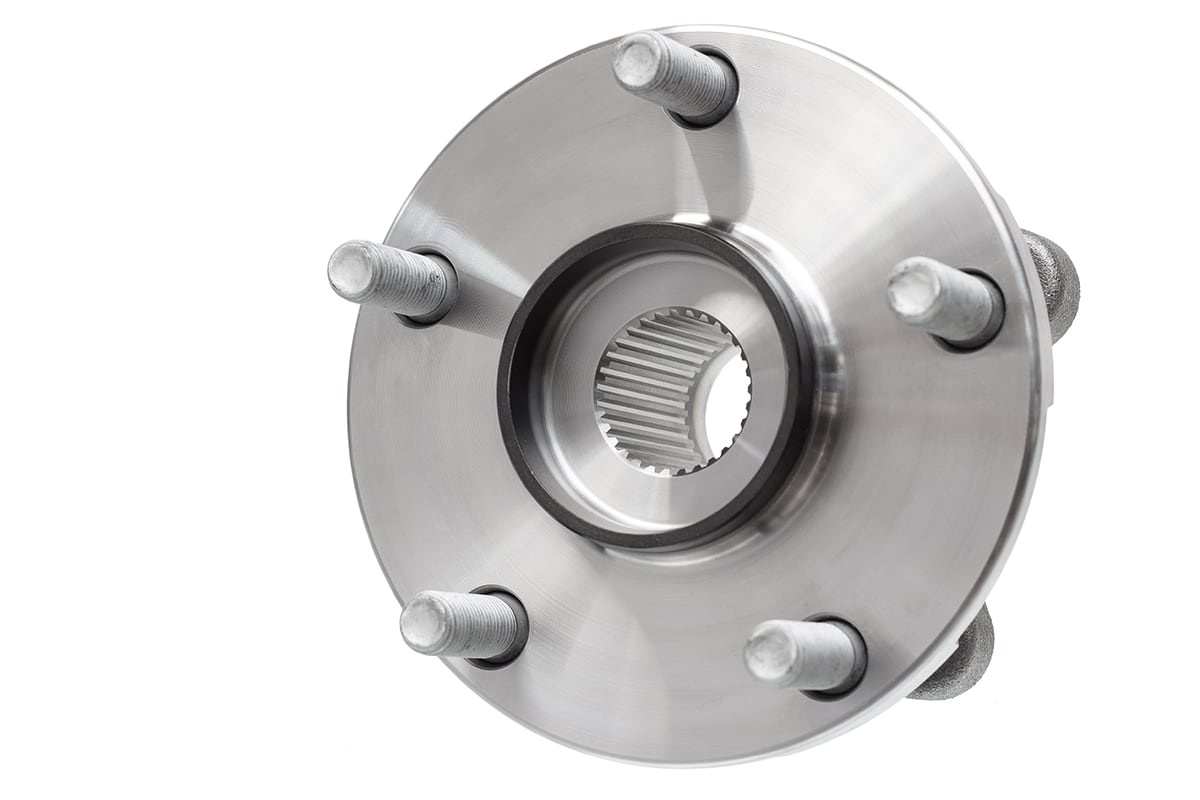
The hub size can vary between Dodge Ram and Ford F-150, and hub rings provide a solution to this mismatch.
Hub rings are used to fill the gap between the hub and the wheel’s center bore, ensuring a snug fit. They come in various materials, including metal and plastic. The choice depends on the vehicle’s usage, with metal often preferred for heavy-duty applications. You need to choose hub rings to match the specifications of both the Dodge Ram wheels and the Ford F-150 hub.
Suspension Adjustments

In some cases, suspension adjustments might be needed to accommodate Dodge Ram wheels on a Ford F-150.
- Alignment Checks: After installation, alignment checks are essential to ensure proper steering and prevent uneven tire wear.
- Suspension Modifications: Depending on the wheel size and offset, suspension modifications might be required. Professional installation is often advised for these changes.
FAQs
1. Can I make incompatible wheels fit with adapters?
Yes, wheel adapters can be used to make incompatible wheels fit on your vehicle. If the bolt pattern of the wheels is different from that of your car, adapters can alter this pattern to make them compatible.
However, you need to choose the correct adapter that matches both the wheel’s and the vehicle’s specifications. The use of adapters should also comply with local regulations and not negatively impact the vehicle’s handling or performance.
2. Are all 5-lug rims wheels interchangeable?
5-lug rims refer to wheels that have five mounting holes for bolts or studs to attach the wheel to the vehicle’s hub. These lugs are evenly spaced around the center hole of the wheel, creating a specific pattern that is crucial for the wheel’s alignment and fitment. In other words, it refers to the ‘5’ in a 5×### bolt pattern.
The ‘###’ above should give you a clear answer to this question, which is no, not all 5-lug rims are interchangeable. 5-lug rims come in various sizes with differing distances between each lug. Unless the bolt patterns on both cars’ wheels are the same, they are incompatible.
